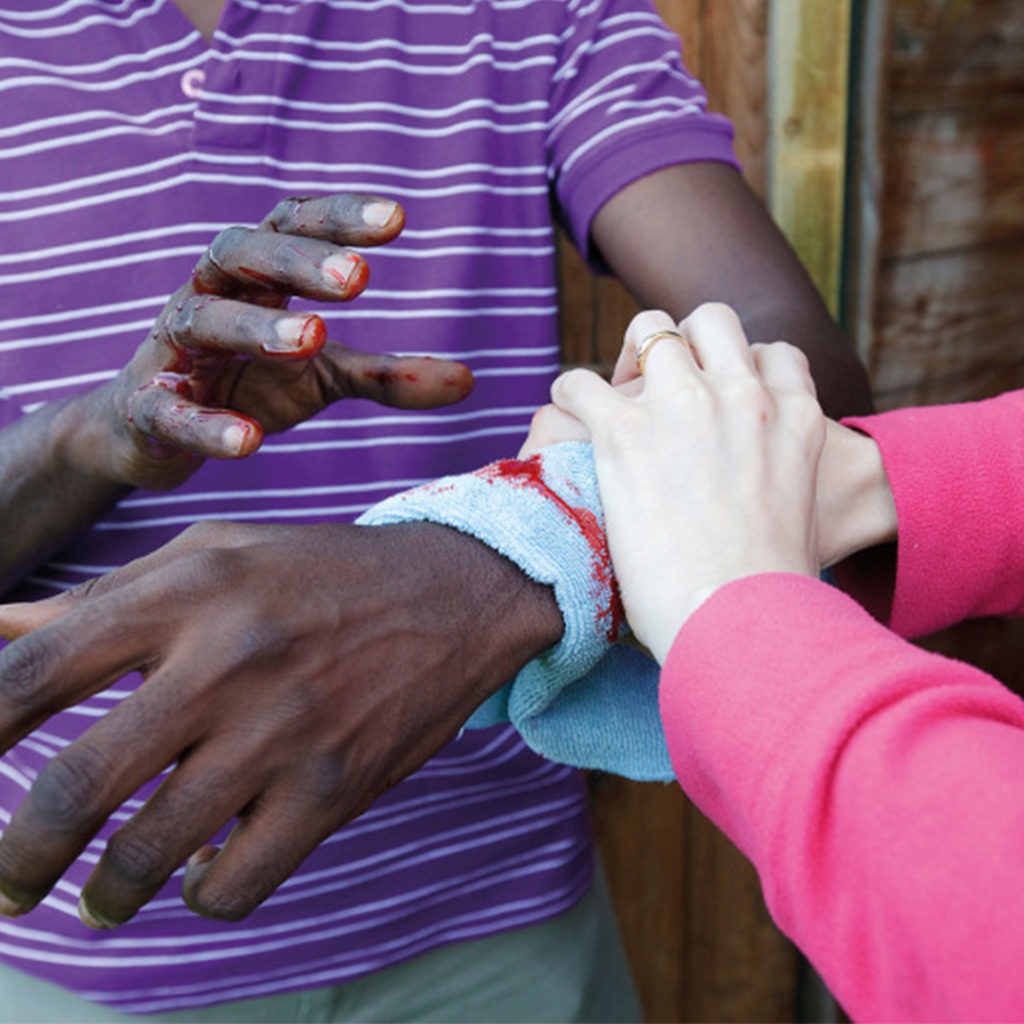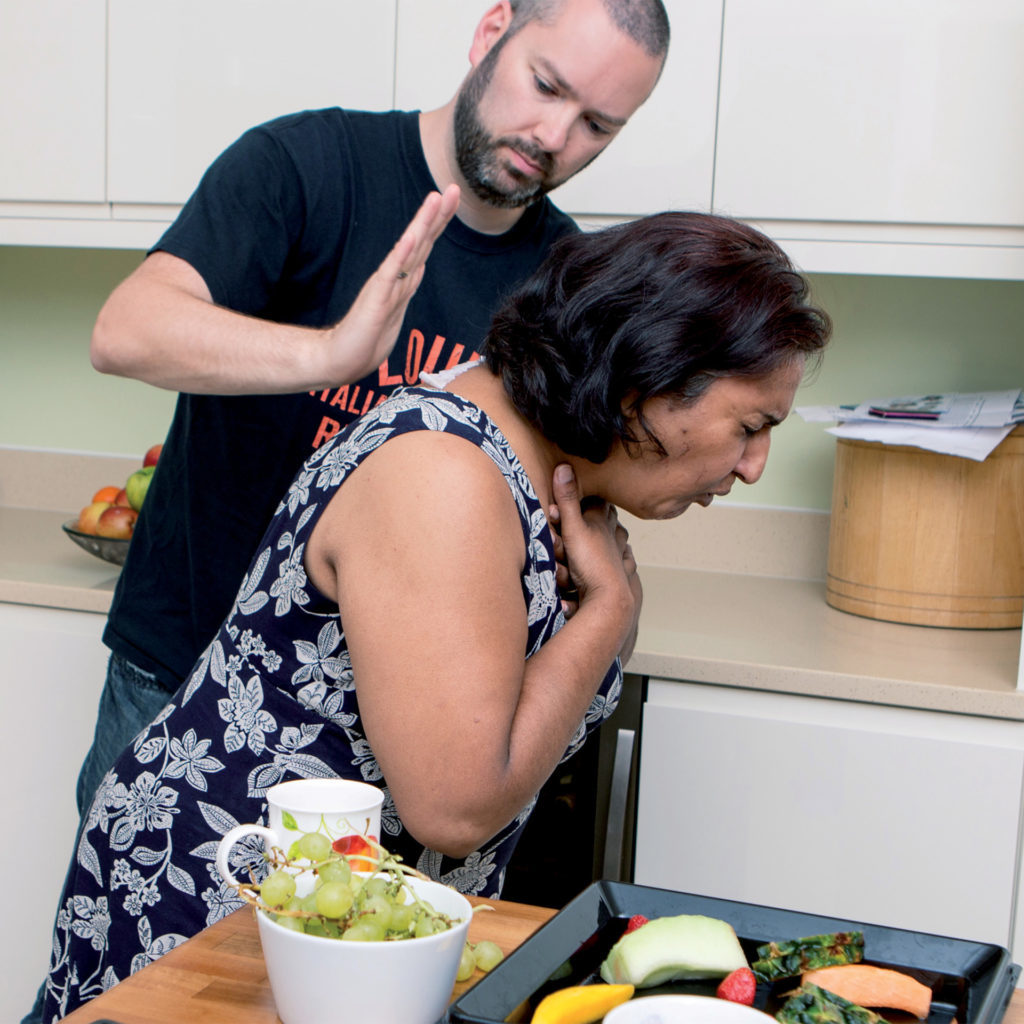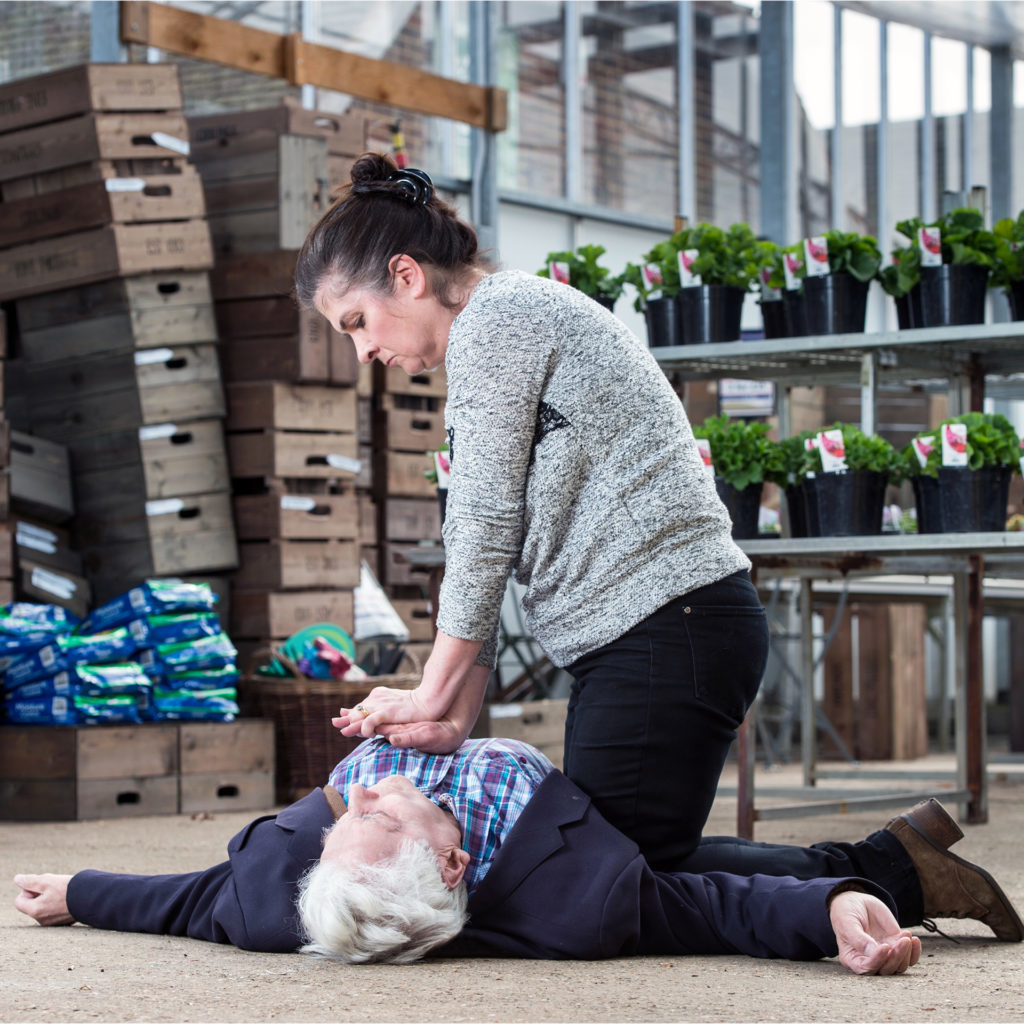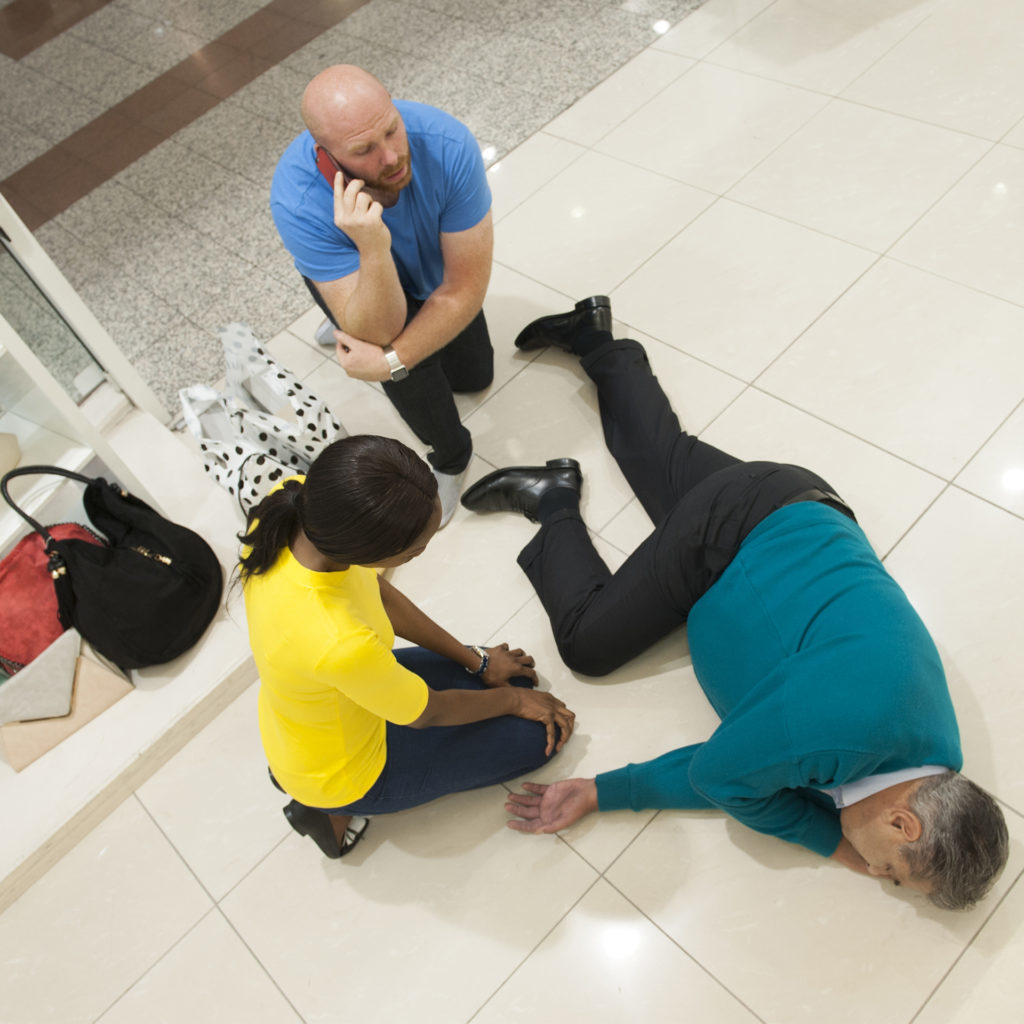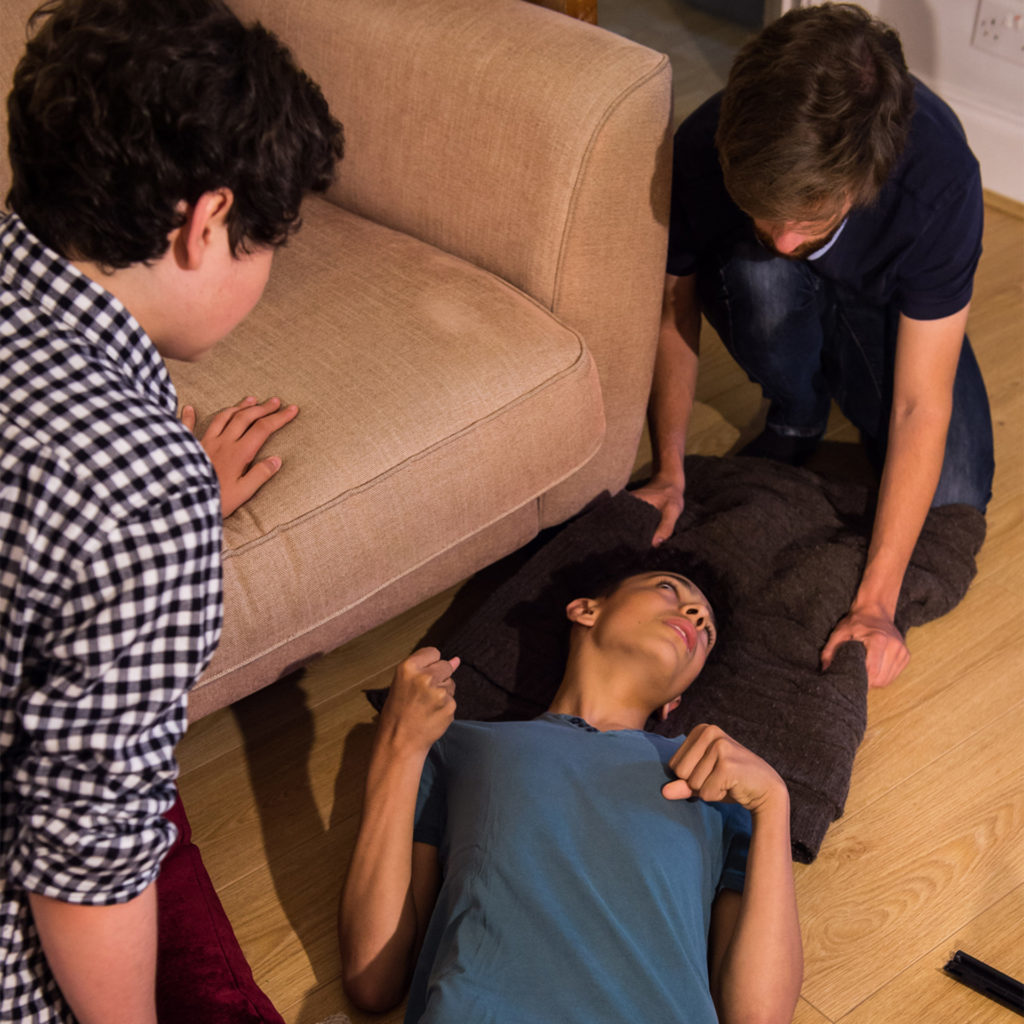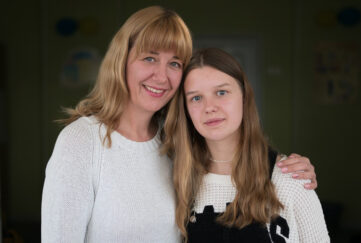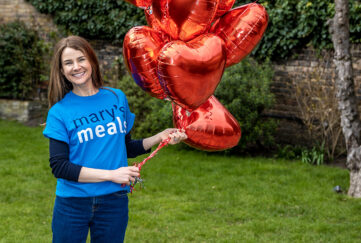Only 1 In 2 Confident To Save A Life
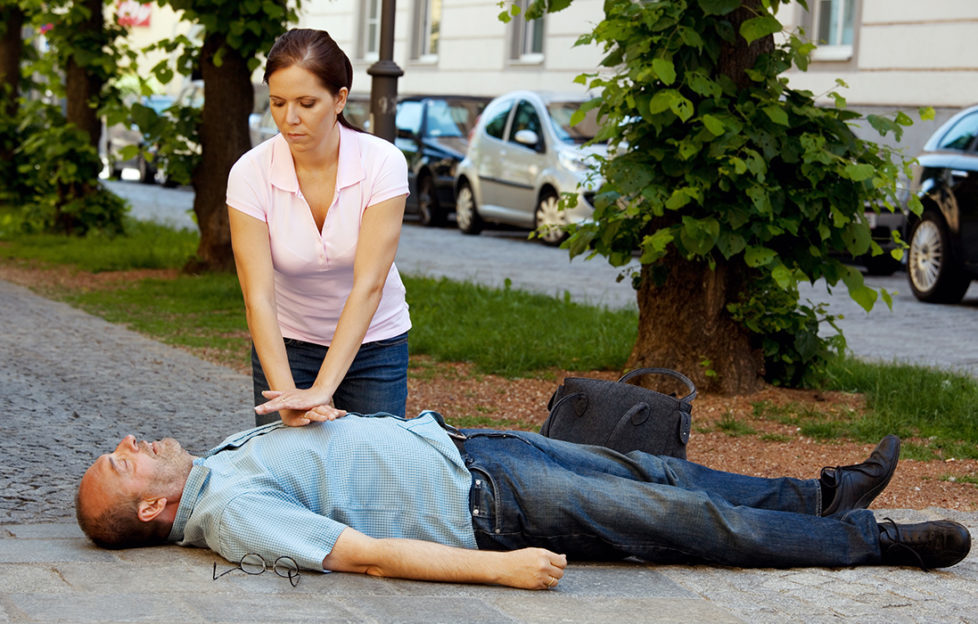
Alarming new research released by the British Red Cross shows there is just a 50:50 chance that someone would be confident enough to help you in a first aid emergency.
For World First Aid Day, researchers questioned 2,004 UK adults and found a worrying lack in confidence when it comes to stepping in to help in a first aid emergency:
- While 88% would want someone to come to their aid, only 50% of UK adults would feel confident about helping.
- Of those asked, 70% would worry about making things worse or doing something wrong.
- Just 4% knew the correct first aid skills, and were confident and likely to help in three of the most life-threatening scenarios.
Be Empowered To Help
For World First Aid Day on Saturday, September 8, the British Red Cross is empowering the nation to learn five simple skills that could save a life – see below.
These include how to help someone who is choking, bleeding heavily, unresponsive and breathing, unresponsive and not breathing or having a seizure.
In a life-threatening emergency, what the first person on the scene does can mean the difference between life and death.
Doing something is always better than nothing.
She Kept His Blood Flowing
When Joanna Mitchell’s husband Graham suffered the first of two cardiac arrests on New Year’s Day, he stopped breathing. Her quick-thinking and first aid knowledge saved his life.
Joanna (52) gave him chest compressions for 11 minutes before the ambulance arrived. Her actions kept his blood flowing to his vital organs, keeping him alive until help arrived.
Graham (52) had complained he didn’t feel well moments before he collapsed on the floor.
Joanna, from Herne Bay in Kent, says everyone should know these vital skills, which could save their loved ones or someone else’s.
“Something Kicked In…”
Joanna said, “My first thought was to run. But then something kicked in, because I had learned first aid and I knew what I had to do.
“I asked my daughter to call an ambulance and sent her outside to wait for it. She left the phone on speaker and the call handler supported me all the way, even when I thought there was no point in continuing.
“It was the most terrifying 11 minutes of my life, but if I needed to, I would do it again. And not just for my husband – for anyone who needed it.
“Without this knowledge I would be a widow and my children would have lost their dad. I’ve made sure that all of my daughters know first aid skills.”
“It’s Normal To Be Worried”
Joe Mulligan, head of first aid at the British Red Cross, said, “The fact that so few people feel they have the knowledge and confidence to step in and help in the most serious first aid scenarios is concerning.
“The actions of the first person on the scene of a life-threatening emergency are vital. In the same way everyone knows to call 999, it’s so important that people have the skills to act before the ambulance arrives.
“It’s normal to feel worried about the prospect of an emergency like this, but doing something is always better than doing nothing. Taking five minutes to learn these five simple skills will give you the confidence to act calmly, and could save someone’s life.”
For World First Aid Day the British Red Cross is calling on the nation to be ready. Show your kindness, give us five minutes of your time and we’ll give you five simple skills that could save a life.
Now learn the skills!
How to help someone who is bleeding heavily
- Put pressure on the wound with whatever is available to stop or slow down the flow of blood.
- Call 999 as soon as possible, or get someone else to do it.
- Keep pressure on the wound until help arrives.
How to help someone who is choking
Someone who is choking may be clutching at their chest or neck and won’t be able to speak, breathe or cough
- Hit them firmly on their back between their shoulder blades. This will help to dislodge the blockage.
- Call 999 if necessary.
How to help someone who is unresponsive and not breathing
If someone is not moving and does not respond when you call them or gently shake their shoulders, they are unresponsive.
- Check if they are breathing by tilting their head back and looking and feeling for breaths.
- If they are not breathing, call 999 as soon as possible, or get someone else to do it.
- Give chest compressions: Push firmly downwards in the middle of their chest and then release.
- Keep pushing firmly at a regular rate until help arrives.
How to help someone who is unresponsive and breathing
If someone is not moving and does not respond when you call them or gently shake their shoulders, they are unresponsive.
- Check if they are breathing by tilting their head back and looking and feeling for breaths.
- If they are breathing, move them onto their side and tilt their head back. This will help keep their airway open.
- Call 999 as soon as possible.
How to help someone who is having an epileptic seizure
- The person has collapsed and is making sudden jerking movements. They may also have froth around their mouth.
- Make them safe and prevent injury. Use a blanket or clothing to protect their head. Do not restrain them.
- After the seizure, help the person to rest on their side with their head tilted back.
- Call 999 if necessary.
The person needs urgent medical attention if:
- it is their first seizure
- the seizure lasts longer than five minutes
- they have hurt themselves
- you are unsure as to the cause of the seizure.
Remember – if you can’t call 999, get someone else to do it.
About World First Aid Day
The International Federation of Red Cross and Red Crescent Societies (IFRC) introduced World First Aid Day in 2000. Each year, more than 100 Red Cross and Red Crescent Societies around the world organise events to raise public awareness of how first aid can save lives in everyday crisis situations.
Do you have a story about first aid skills saving the day? Tell us about it on our Facebook page…

